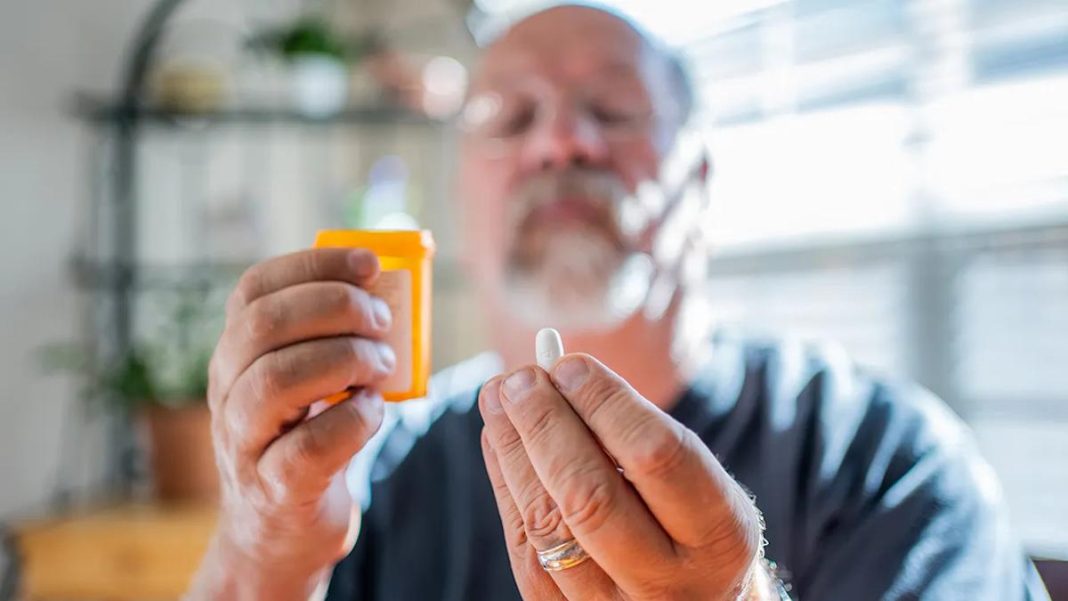Imagine a life rich with memories, wisdom, and the comfort of routine. Now, imagine that life cut tragically short, not by a sudden illness, but by a silent, insidious threat hiding in plain sight: dangerous drug combinations. While the opioid crisis often focuses on younger demographics, a startling and heartbreaking trend is emerging among our seniors. Overdose deaths among older adults are sharply increasing, often linked to the complex cocktails of medications they rely on daily.
The Silent Threat: Why Seniors Are Uniquely Vulnerable
Our senior population frequently manages multiple chronic health conditions, from heart disease and diabetes to arthritis and anxiety. This often means they’re taking a handful, or even a dozen, different medications simultaneously – a phenomenon known as polypharmacy. While each drug is prescribed with good intent, the sheer volume creates a minefield of potential interactions.
Compounding this complexity are the natural physiological changes that come with aging. As we get older, our bodies metabolize drugs differently. Kidneys and liver function may slow, meaning medications stay in the system longer, potentially accumulating to toxic levels. A dosage that was perfectly safe at 50 might be dangerous at 70. Cognitive changes can also play a role, leading to accidental double-dosing or forgotten interactions.
Many seniors also visit multiple specialists, each prescribing medications without a complete picture of everything else their patient is taking. This fragmented approach can lead to dangerous overlaps and overlooked contraindications, turning a regimen meant to improve health into a recipe for disaster.
The Dangerous Cocktail: More Than Just Prescriptions
The combinations causing concern aren’t always illicit street drugs. Often, they involve perfectly legal, prescribed medications mixing with each other, with over-the-counter remedies, or even with alcohol. A classic example is the combination of opioids (for pain) and benzodiazepines (for anxiety or sleep). Both depress the central nervous system, and when taken together, their effects are dramatically amplified, leading to severe respiratory depression, coma, or death.
But the danger extends beyond these well-known pairings. Simple antihistamines, commonly used for allergies or sleep, can have sedative effects that, when combined with other sedating medications, can be profoundly dangerous for an older adult. Alcohol, even in moderation, can intensify the effects of many prescription drugs, from blood thinners to antidepressants.
“It’s not always about illicit drugs. Often, it’s a tragic puzzle of perfectly legal prescriptions, mixed sometimes with over-the-counter remedies or even a glass of wine, creating a toxic synergy that overwhelms an older body,” says Dr. Evelyn Reed, a geriatric pharmacist focused on medication safety. This highlights the crucial need for awareness, not just about illicit substances, but about the everyday medications in our cabinets.
A Call for Vigilance and Open Communication
The rise in overdose deaths among seniors due to drug combinations is a somber reminder that medication management is a critical and ongoing process. It’s a call to action for everyone involved: seniors themselves, their families, caregivers, and healthcare providers.
Open communication with doctors and pharmacists is paramount. Seniors should bring a complete, updated list of all medications, including over-the-counter drugs, supplements, and even herbal remedies, to every appointment. Don’t hesitate to ask questions: “What are the potential interactions?” “Is this safe to take with my other medications?” Pharmacists are an invaluable resource, often the last line of defense in identifying dangerous overlaps.
For family members and caregivers, becoming advocates is essential. Help seniors organize their medications, understand their purpose, and monitor for any adverse effects. Ensuring proper disposal of unused or expired medications can also prevent accidental misuse. This isn’t about casting blame; it’s about fostering an environment of awareness, support, and proactive safety to protect the health and well-being of our elders.
The wisdom and experiences of our seniors are invaluable. Let’s ensure they can continue to share them, free from the preventable dangers of medication interactions.




